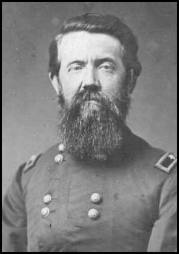General Charles H. Grosvenor Civil War Round Table
Monday, Sept. 9th – What Presidents could do and why Lincoln’s election sparked the Civil War? Today we hear lots of talk suggesting Presidential elections provide existential threats to the Republic. Yet despite close calls in 1800, 1876 and 2020, only in 1860 has a presidential election triggered a constitutional crisis that eventually led to war. Before 1860, the gravest threats to the Union–the Hartford Convention, Nullification, and the 1850s sectional crisis–had emerged from war or Congressional action. What made 1860 different? Ardently pro-southern slaveowners refusal to tolerate the victory of a regional Free-Soil party, determined to stop slavery’s expansion was key. This talk will show how that was intertwined with the feared expansion of executive power in the decade leading up to the Civil War. Though small compared to the power of modern Presidents, the occupant of the mid-19th century White House had the ability to shape federal action in ways that Americans knew would be consequential. Jefferson Davis and Abraham Lincoln might have agreed on little else, but they agreed on that and in ways that shaped the presidential election and the crisis that followed. — Confirmed
Monday, Oct. 7th – “11th Ohio Cavalry” W. Martin Lowery Jr. — Confirmed
Monday, Nov. 18th – “Hellmira: The Union’s Most Infamous Civil War Prison Camp in Elmira, N.Y.” Based on his book by the same name. Derek Maxfield, associate professor of history, Genesee CC, Batavia, NY – Confirmed
Monday, Jan. 6th – Book Review Panel (Steering Committee, and other volunteers)
Monday, Feb. 3rd – “The biggest and most important Civil War battle you never heard of — the Battle of Port Royal Sound,” or “’Shock & Awe’ 19th Century style.” Carl J. Denbow
Monday, March 3rd – “Voices from the Attic: The Williamstown Boys in the Civil War.” This is a story based on the diaries of two brothers who served in the Vermont Brigade. Carleton Young, MA in History from Ohio & Ph.D. from Pittsburgh; retired AP history teacher at Thomas Jefferson High School in Pittsburgh. – Confirmed
April 7th –
Monday, April 28th – “A Thousand May Fall: Life, Death & Survival in the Union Army.” Based on his book by the same name, it focuses on the 107th OVI, and the special struggles and challenges faced by its mainly German immigrant members. Brian Jordan, BA in history from Gettysburg College, Ph.D. from Yale. — Confirmed
2025-26
Joan Leotta as Louisa May Alcott, Civil War nurse, followed by a presentation in Marietta for Mid Ohio Valley CWRT. This is cosponsored by the two CWRTs and the SOHC, where the Athens presentation will be held. Joan is an Ohio graduate and has won national acclaim for her re-enactments. Sept 3rd in Athens, and Sept 4 in Marietta -– Confirmed
Possible substitutes (as needed):
“What did your ancestor do in the war?” Steering Committee members, with audience participation
“Journalism during the Civil War,” Carl J. Denbow
Flamboyant Generals. A true roundtable discussion of some of the most eccentric and flamboyant generals of the late rebellion. Possible candidates include George Custer, Stonewall Jackson, Judson Kilpatrick, David Hunter, Thomas Francis Meagher, Nathan Forrest, Don Carlos Buell, Thomas Maley Harris, and John C. Frémont.
Battles of Monocacy and Ft. Stevens. This will be a two-part presentation. First Carl J. Denbow will discuss the Battle of Monocacy, which was a Confederate victory but delayed the rebel advance on Washington enough to allow reinforcements to be put in place so that Confederates were repulsed at Ft. Stevens. Monocacy was an ironic battle in that while it was a defeat, it probably represented the best leadership of the war for General Lew Wallace. The second part of the meeting will be a discussion of Ft. Stevens lead by John Murray. Some have called this campaign by Jubal Early to threaten or take Washington as the last chance for victory by the Confederacy.
MEETINGS ARE GENERALLY HELD ON THE FIRST MONDAY OF EACH MONTH AT THE ATHENS COUNTY LIBRARY BRANCH AT THE CORNER OF LINCOLN AND HOME STREETS IN THE CITY OF ATHENS. MEETINGS START AT 7:00 P.M. AND RUN FOR AN HOUR AND HALF. EXCEPTIONS TO THE FIRST MONDAY MEETING DATES OCCUR WHEN THAT FIRST MONDAY IS A HOLIDAY, OR SOMETIMES IN NOVEMBER IF THE FOLLOWING DAY IS AN ELECTION DAY BECAUSE THE LIBRARY IS A POLLING PLACE AND NEEDS THAT DAY TO PREPARE FOR THE ELECTION.

